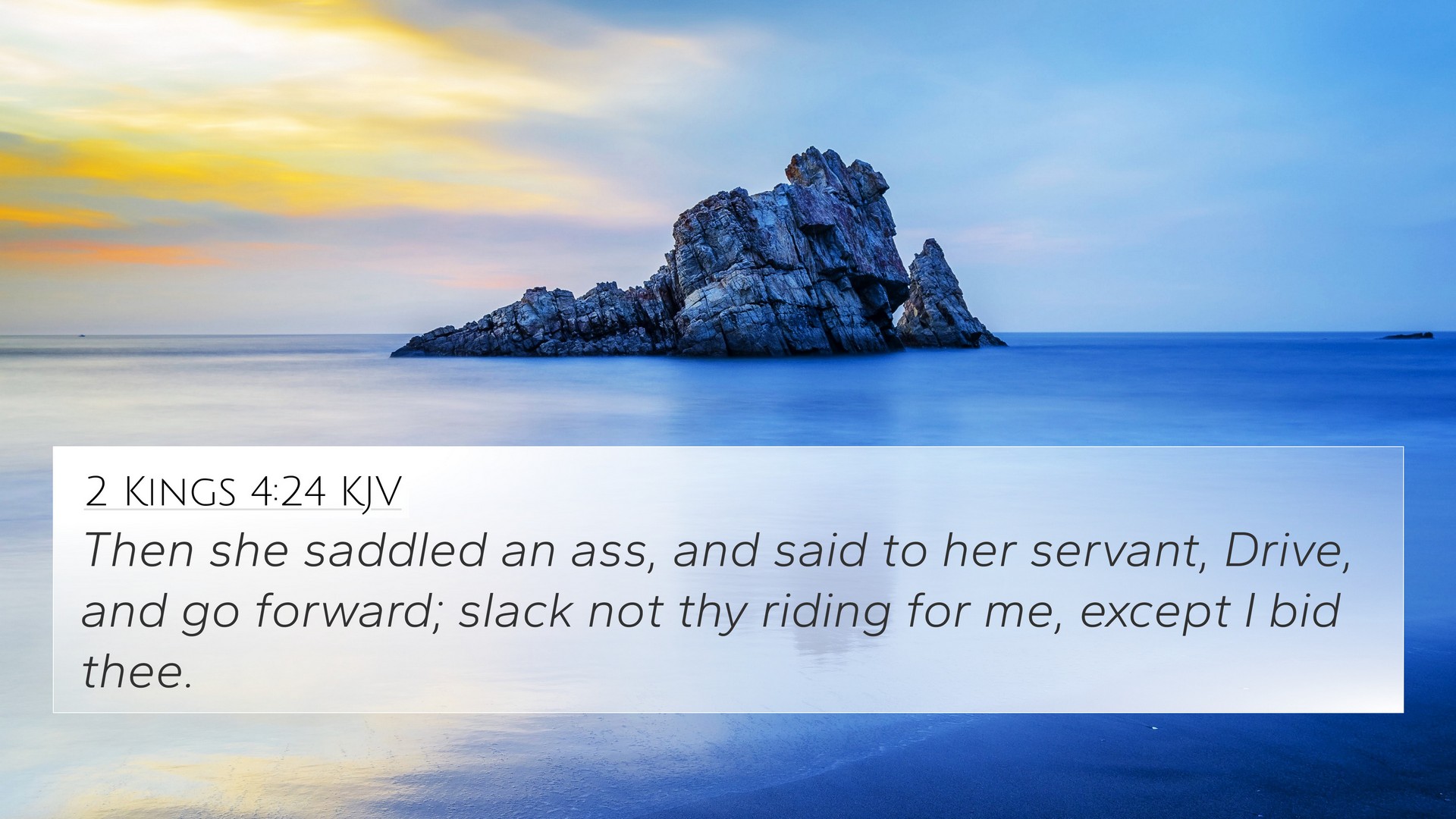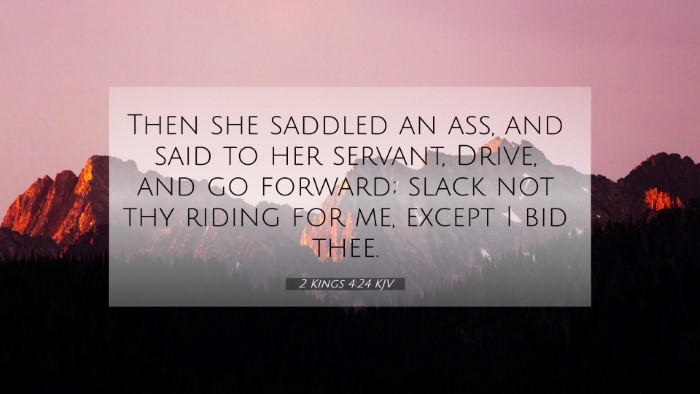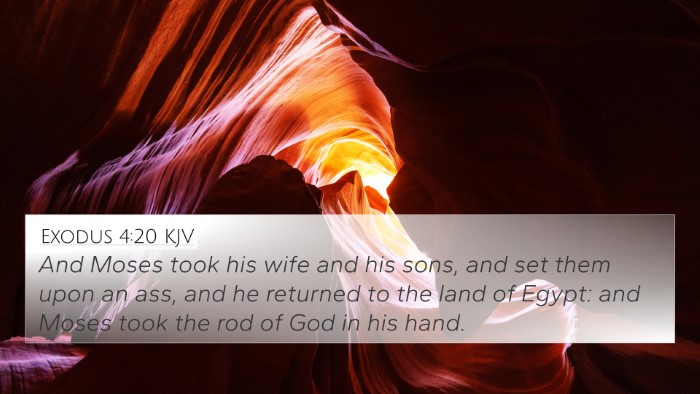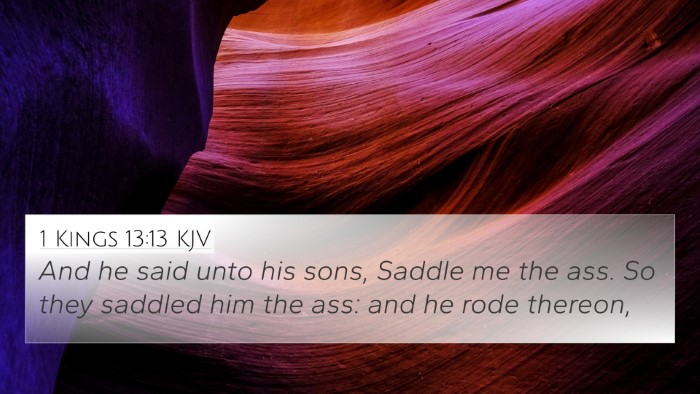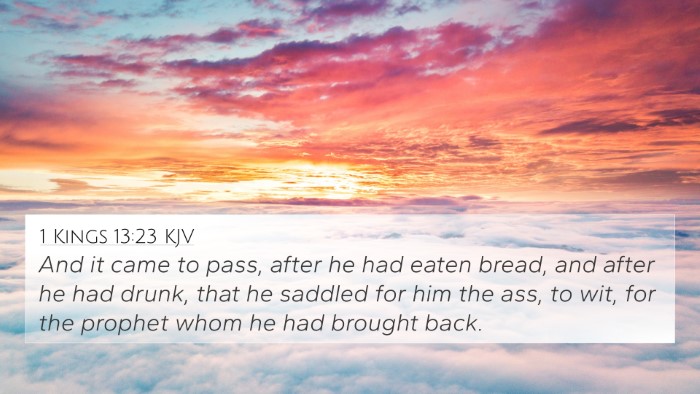Understanding 2 Kings 4:24
Verse: 2 Kings 4:24
This verse describes the urgent and heartfelt journey of a mother whose son has died. She sets out to find the prophet Elisha for help, illustrating themes of faith, desperation, and divine intervention.
Commentary Insights
Various public domain commentaries provide insights into the meaning of this verse:
-
Matthew Henry:
Henry emphasizes the faith of the Shunammite woman as she chooses to seek out Elisha despite her dire circumstances. Her decision to go directly to the prophet showcases her belief in God's power to intervene.
-
Albert Barnes:
Barnes highlights the emotional intensity of the situation. He notes the woman's unwavering determination to seek help, reflecting a crucial aspect of her character—her deep love for her son and her trust in God's prophetic messenger.
-
Adam Clarke:
Clarke delves into the cultural significance, pointing out that the Shunammite woman disregards societal norms when she sets out for Elisha. Her actions demonstrate her profound belief in the prophetic office and the importance of faith in God’s ability to restore life.
Thematic Connections
This verse can be connected to several overarching themes in scripture:
- Faith in Crisis: This narrative illustrates the concept of maintaining faith in difficult times.
- Divine Intercession: The woman's search for Elisha symbolizes the broader theme of seeking divine help through prayer and action.
- Restoration: Central to the text is the theme of restoration, both physically in healing and spiritually through faith.
Bible Verse Cross-References
There are several other scriptures that relate to 2 Kings 4:24. Here are some significant connections:
- 1 Kings 17:22: The prophet Elijah raises the widow's son, showing God's miraculous power over death.
- 2 Kings 4:35: The continuation of the story where Elisha raises the Shunammite woman's son.
- Mark 5:35-42: Jesus brings back to life a ruler’s daughter, emphasizing faith's role in miracles.
- John 11:43-44: Jesus raising Lazarus signifies the ultimate power of God over death.
- Romans 8:11: The promise of resurrection in Christ aligns with the theme of divine life-giving power.
- Hebrews 11:35: Mention of women receiving their dead raised to life illustrates faith in resurrection.
- James 5:16-18: Refers to the power of prayer and faith, resonating with the actions of the Shunammite woman.
Conclusion
The exploration of 2 Kings 4:24 invites readers to reflect upon their faith journeys, the importance of seeking help in times of despair, and the belief in divine miracles. This verse serves as a reminder of the interconnectedness found within the Bible and the reinforcement of themes through various cross-references.
